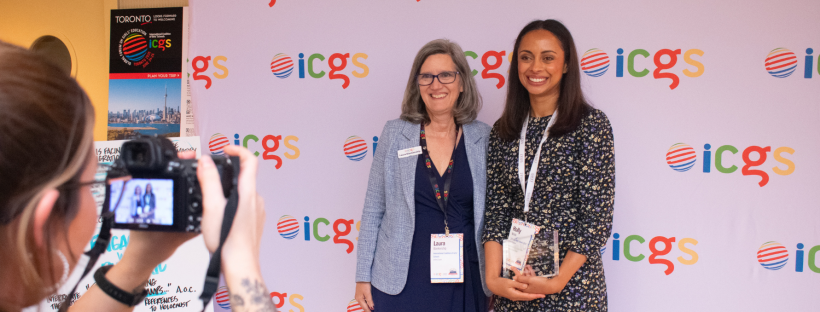Equipping Girls to Lead Their Learning: Insights from GARC 2025

The ICGS Global Action Research Collaborative on Girls’ Education (GARC) brings together educators from around the world to conduct classroom-based research aimed at improving learning outcomes for students and enhancing teaching practice. The 2025 cohort, who presented their work at the ICGS Global Conference in Philadelphia, focused on fostering student agency—a critical capacity for lifelong learning and leadership.
Agency matters. It helps counteract the perfectionism, self-doubt, and fear of failure that often take root in girls’ learning experiences. As GARC fellow Kate Faber writes, the goal is to help girls “boldly thrive in the face of societal perceptions” (p. 2), while Toby Duncan emphasizes the importance of cultivating “agents of change with the capacity to solve significant technical problems” (p. 3). Kelli Crawford notes that building agency means “equipping students with the skills and confidence to take charge of their learning” (p. 5).
Through diverse pedagogical strategies, fellows explored meaningful ways to build agency across subject areas and age groups. Their findings offer practical, tested strategies that educators can adapt and apply in their own classrooms.
Pedagogical Strategies
Several recurring strategies emerged across the cohort’s work:
Growth Mindset and Normalizing Struggle
Fellows emphasized creating environments where girls could take risks, view mistakes as part of the learning process, and shift their mindset around challenge. Some taught growth mindset concepts explicitly; others incorporated strategies like feedback protocols and structured dialogue to support emotional safety and risk-taking.
Student Voice and Co-Design
Many fellows shared curriculum design responsibilities with students, allowing them to shape lessons and units. This co-creation made learning more relevant and sparked greater engagement, as students became active participants in the process rather than passive recipients.
Collaboration and Peer Learning
Peer interaction—through group work, discussions, or shared problem-solving—played a key role in building agency. By working together, girls learned to normalize mistakes, appreciate diverse approaches, and build confidence in their contributions.
Mentorship and Role Models
Mentoring relationships, whether peer-based or involving outside role models, helped students see new possibilities for themselves. Peer mentors developed leadership skills and confidence, while mentees reported a stronger sense of agency and belonging. Bringing in female mentors also encouraged students to envision broader futures.
Observable Outcomes
While the primary goal was to foster agency, fellows also observed broader benefits:
- Increased Confidence and Self-Efficacy
Students became more willing to take risks, express ideas, and believe in their ability to influence academic outcomes. - Higher Engagement and Motivation
Fellows reported a shift in classroom culture: richer discussions, fewer off-task behaviors, more initiative, and stronger persistence through challenges. - Shift Toward Self-Directed Learning
Girls moved away from focusing solely on the “right answer” and began embracing the process of learning. As one fellow described, they became “drivers of their own learning.” - Improved Problem-Solving and Critical Thinking
Students applied their knowledge in new ways, evaluated their work more deeply, and took creative risks—signs of deeper cognitive engagement. - Emerging Leadership Skills
Through explicit instruction or role placement, students practiced leadership, public speaking, adaptability, and social awareness. Many expressed a desire to create change beyond the classroom. - Deeper Conceptual Understanding
As students developed more agency, fellows observed stronger grasp of academic content—from math and history to leadership principles.
These outcomes represent just a sampling of this year’s GARC research findings. We invite you to explore the papers, videos and podcasts for a more in-depth look at ways to improve student agency and support girls’ learning. a deeper dive into the strategies and insights uncovered by this remarkable cohort. Past GARC cohorts have also explored student agency and related topics. Explore previous years’ findings for more ideas for your classroom or school.